After John McDonnell made his very first speech at the despatch box, he headed to a restaurant in parliament to celebrate. The shadow chancellor was in high spirits as he joined his wife and staff for dinner at the Adjournment. Labour leader Jeremy Corbyn arrived later to commend his old friend on his frontbench debut. McDonnell had taken on Tory chancellor George Osborne head-to-head for the first time – over Osborne's "charter for budget responsibility" – and he had relished every minute of it.
Allies of the shadow chancellor believe Osborne was “under the cosh” during the debate because he didn’t know how to handle his new "older, working-class rival". But some Labour backbenchers weren’t quite as convinced. After all, McDonnell delighted the Tories by kicking off with this unconventional opener: “I suppose I should deal straightforwardly with the issue of the U-turn."
Welcome to Labour's parallel universe. Two of the party's staunchest rebels, neither of whom have any frontbench experience, are now the leader and shadow chancellor of the opposition. And ahead of Osborne's spending review next month, the spotlight is now turning on to McDonnell, a hugely divisive figure who wins praise for his campaign work but leaves many MPs cold. Six weeks into his new role, BuzzFeed News spoke to friends and colleagues to find out what they make of him.
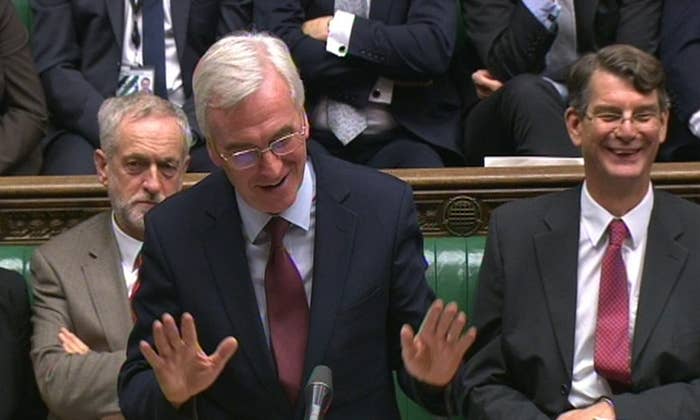
Many Labour figures were rather baffled as to why McDonnell hadn’t opposed Osborne’s fiscal charter, which forces future governments to run a budget surplus, from the beginning. After all, he was among the first to criticise then acting leader Harriet Harman for ordering MPs not to vote against welfare cuts in the summer. (He said he would “swim through vomit” to oppose the bill).
But once he got into the shadow cabinet himself, McDonnell declared that Labour would back the Tories’ "budget responsibility" charter because they were not “deficit deniers”. One party staffer told BuzzFeed News: "When Harriet said we had to live within our means, he went mental about it. But as soon as he gets into a position of power, he makes the same fucking mistake.”
McDonnell, 64, said it was a visit to Redcar, Teesside, where thousands of steelworkers are set to lose their jobs, which changed his mind. "He was really moved by his visit," a friend said. "Labour needs to be on the side of people like that, political games don't matter. Did we take a small hit? Yes, but you can't judge our record by one week in parliament."

But others were not so happy. Former culture secretary Ben Bradshaw had summed up the feelings of many on the back benches by branding the situation a “total fucking shambles”, after a tense meeting of the parliamentary Labour party just two days before the Commons debate. Other MPs who served under Tony Blair were equally downhearted, albeit not quite as publicly.
After that PLP meeting, McDonnell headed to Strangers bar, on the Commons terrace, for a drink with his advisers. Veteran left-winger Dennis Skinner marched up to him: “Don’t let them get you down, John! It’s a party within a party.” Such an observation appeals to McDonnell, who has long believed that Blair and his allies “staged a coup” of Labour and now wants to reclaim the party for the left.
But it wasn't just the U-turn that made the party uncomfortable. Labour staffers also squirmed at McDonnell's confession during his Commons speech that he was “trying to out-Osborne Osborne”. One Labour HQ source said: “That was the moment that struck everyone as being mad. He likes to think he’s the cleverest person in the room; he thinks taking on a fortysomething is easy, like, 'I can play politics opposite this guy, no problem’ – and then he gets battered. He has respect for Osborne but he has the arrogance to believe he’s better than him.”
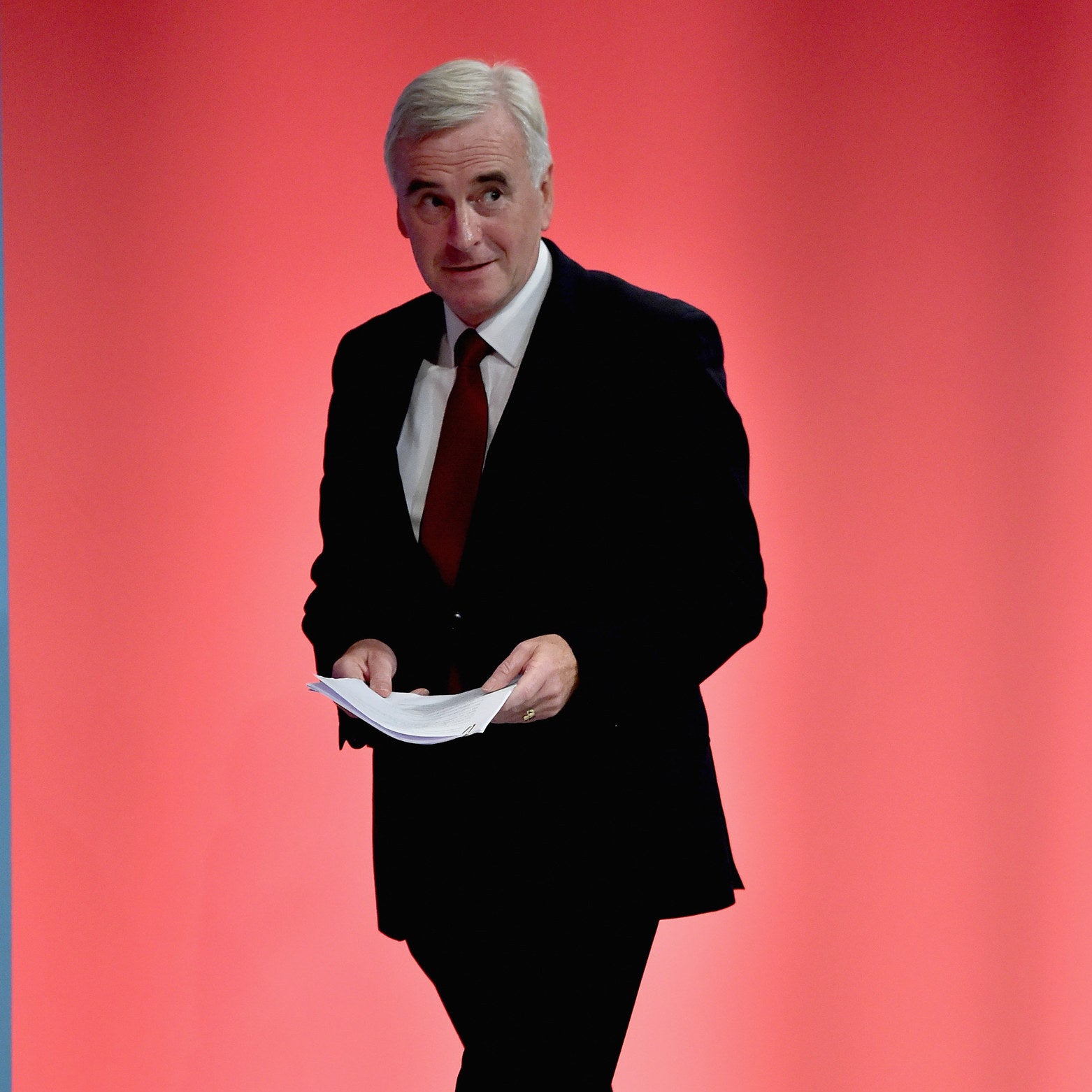

It’s fair to say McDonnell doesn’t have the best reputation among Labour MPs. Ask a random selection what they make of him, and the phrase “nasty piece of work” comes up repeatedly. One MP likened him to Ronnie Kray, as portrayed by Tom Hardy in the movie Legend: “He’s dead behind the eyes." While Corbyn is widely viewed as friendly, calm, and relatable – by MPs from all wings of the party – McDonnell is seen as aggressive, egotistical, and prickly.
And he's acutely aware of it, too. Four days after he was appointed shadow chancellor in September, he appeared on BBC’s Question Time to reveal the new, improved John 2.0. “I think Jeremy is teaching me to be a nicer person,” he said with a smile. He apologised for joking in 2010 about assassinating Margaret Thatcher, and for saying in 2003 that IRA members should be “honoured” for their “armed struggle”.
But he can’t help his tempestuous personality, and contempt for both the Tories and Blairite wing of his party, bubbling over on occasion. Flashes of this were on display during his Commons speech – when he barely concealed his disgust at Tories interrupting him. McDonnell told one MP: “It is always best to make a calculation as to whether he is going to add to the sum of human knowledge by the intervention.” He promptly apologised for being a “bit harsh”.
This is the man who listed “fermenting [sic] the overthrow of capitalism” as a hobby in Who’s Who; who was suspended from the Commons for five days in 2009 after grabbing the ceremonial mace in protest at plans for Heathrow's expansion; and who has been accused by ex-Tory-minister Esther McVey of sexist abuse (which he vehemently refutes). Friends deny that McDonnell has a temper. "What you’re seeing is a man who’s passionate about the issues,” one said. “He’s driven by a desire to put the injustices of this world right."

A former Labour adviser told us: “He is very funny, very intelligent, but he’s also very angry about how the party has been run. Do not underestimate that anger. It’s been bubbling up for 30 years.” McDonnell is described as “well-spoken, down-to-earth, and friendly” by those who work closely with him. He often makes cups of tea for his team, including Corbyn’s 25-year-old son, Seb, who serves as McDonnell's chief of staff.
The shadow chancellor works down the same corridor as the leader, in a suite of offices in parliament’s Norman Shaw South building, and the pair often pop into each other’s rooms. “There has never been a relationship like this at the top of Labour,” one ally said. “It couldn’t be more different than Blair/[Gordon] Brown; in fact it’s more like the relationship between [David] Cameron and Osborne.”
McDonnell helped mastermind Corbyn’s stunning leadership campaign this summer and the pair have been firm friends for decades. But there are questions over whether Corbyn really wanted McDonnell as his shadow chancellor at all.
BuzzFeed News understands that just a week before the shadow cabinet was unveiled, Corbyn was privately reassuring people that his old friend would not get the key economic role. Instead he was leaning toward appointing a more mainstream MP as shadow chancellor, such as Angela Eagle or Owen Smith. “He knows John's faults and how it would look," a senior party source said. "But John basically bullied him into it.”
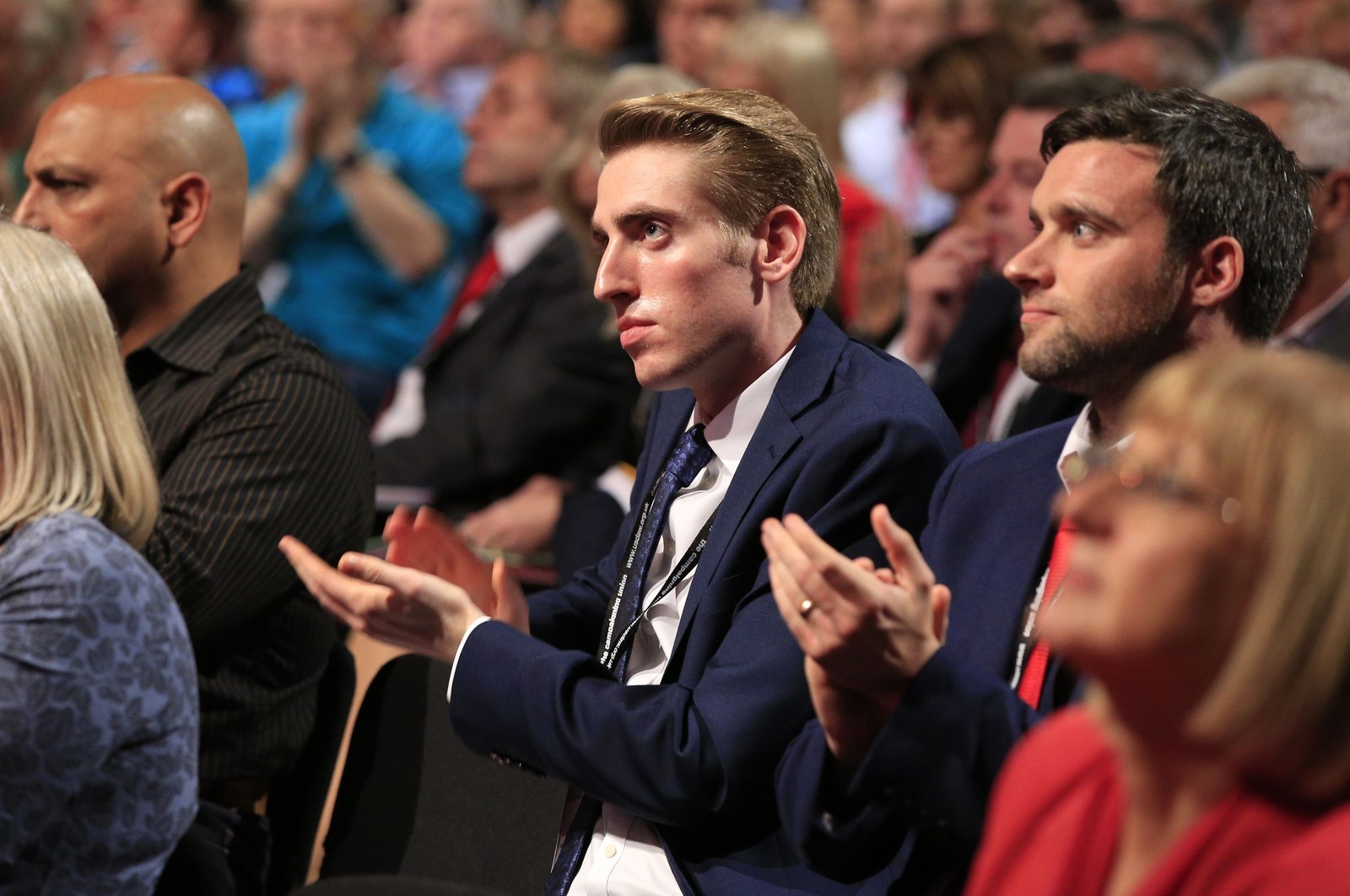
McDonnell’s team denies that claim. Yet it’s clear that McDonnell recognised this was probably his only chance to do the job he had longed to do for so long. He was desperate to get into a position where he could “formulate an economic plan that’s really based on reducing inequality and opening up opportunities for people”, an ally said.
His appointment, announced on 14 September, was greeted with horror and disbelief by many backbenchers. At the TUC conference in Brighton, one senior union official told us he was a “terrible choice”, adding: “He’s a relic of the past and too hardline … It just sends out the wrong message.” Soon afterward, McDonnell was overheard in Westminster saying he had been "overwhelmed by a tsunami of shit" since his appointment.
He has thrown himself into his new job with gusto and can be found in parliament day and night. This work ethic is nothing new – he has long toiled on campaigns over workers' pay, women’s rights, miscarriages of justice, inequality, and climate change. Yet he is struggling now to leave that campaigning work behind, despite taking on such a crucial economic role. Friends have warned him that he needs to delegate.
"He’s really running himself ragged trying to combine the new responsibilities with the old,” one ally said. “He’s got about 8,000 unread emails and needs more staff. But he feels like campaigners put him where is today and he can’t ignore them.”

On the day of the fiscal charter debate – when he was preparing for his first Commons speech as shadow chancellor – McDonnell met with campaigners for eye surgery regulation and with representatives of the Fire Brigade Union. Similarly, on the afternoon of the dramatic Labour leadership result, he and Corbyn went to a protest against the Yarl’s Wood detention centre, as well as a demo in Downing Street to call for the release of Guantanamo Bay detainee Shaker Aamer.
Friends told BuzzFeed News that McDonnell is likely to pass his campaigning duties to his most loyal MPs, such as shadow energy minister Clive Lewis and Kate Osamor, Corbyn’s parliamentary private secretary. He wants to free them from some frontbench tasks so they have more space to fight for causes and back early-day motions.
While Corbyn has led campaigns on international issues – Gaza, Iran, Iraq – McDonnell has effectively been his domestic equivalent, constantly organising demos and meetings to protest against UK policies. Before he joined the front bench, McDonnell also chaired a number of left-wing groups, including the Socialist Campaign Group, the Labour Representation Committee, and the Public Services Not Private Profit Group.
His focus on issues outside parliament, and his countless rebellions against his own party, means that he hasn’t built up a loyal following of MPs. He’s not one for small talk in the tearooms when there are protests and marches to attend. Allies say that his long-term dedication to unfashionable causes and failure to play Westminster games make most Labour MPs look bad.

McDonnell's unpopularity in Westminster means he has twice failed to get on to the leadership ballot himself. In 2007, he tried to run against Gordon Brown but fell short of the nominations required. Then in 2010 he fell short again, and withdrew from the contest in favour of Diane Abbott, who did make the ballot paper. Both times he pledged to reverse moves toward privatisation and bring back a “real Labour government”.
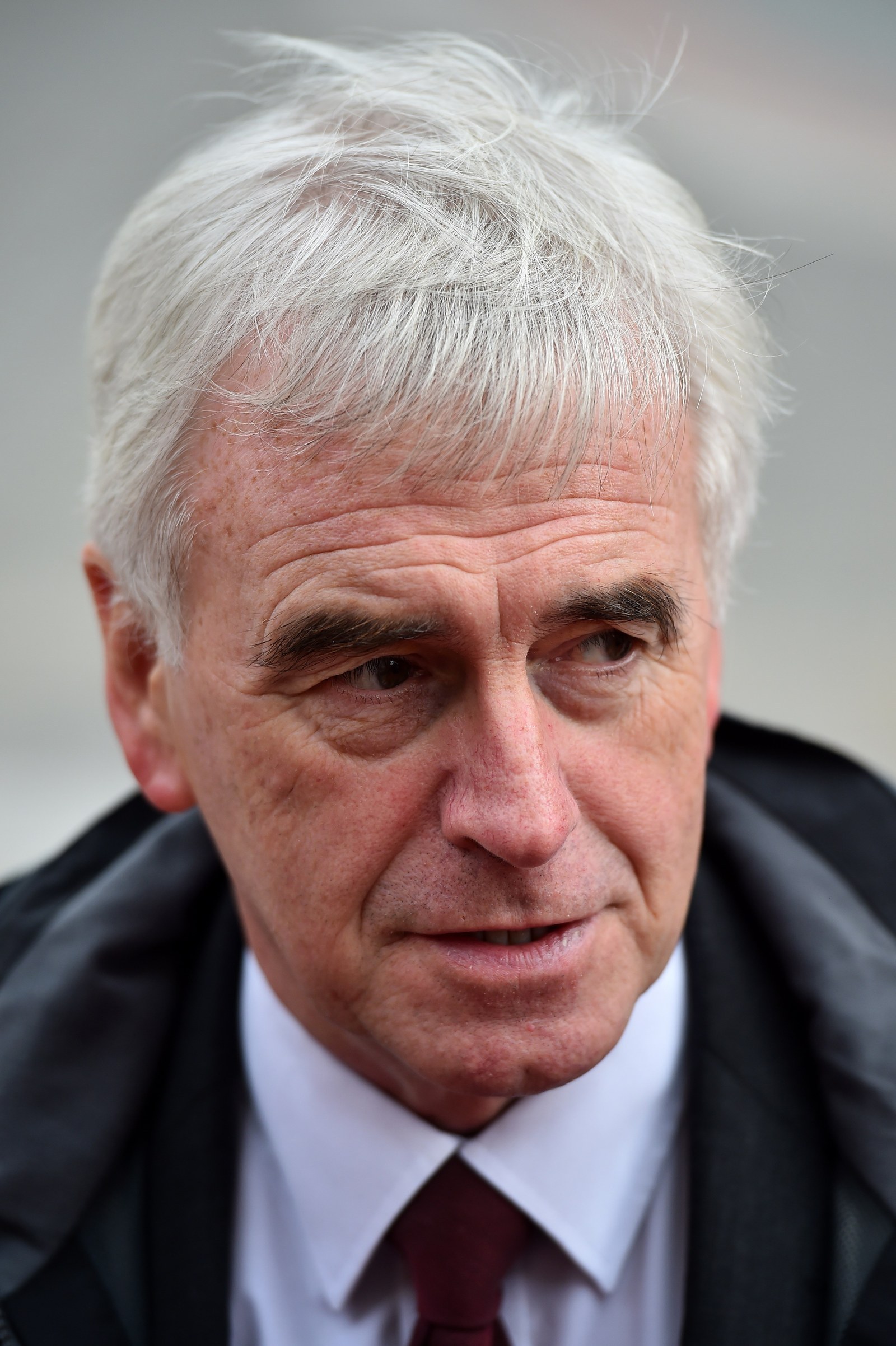
He told the New Statesman in 2013 that he was effectively “blocked” from standing by “Blair and Brown, that whole clique” through the high threshold for MP nominations, saying: "They were terrified that if I got on the ballot paper I would show sufficient breadth of support from the rank-and-file members and the trade union movement that they'd have to acknowledge there was support for the policies I was advocating."
Friends say it was simply "the wrong time" for McDonnell. A perfect storm saw Corbyn clinch victory – the party rule change allowing anyone to have a vote for £3, a growing disenchantment with politics as usual, and the incredible success of his social media campaign. But of course, there was also Corbyn himself – a mild-mannered, reasonable, and, well, nice man. “Temperament matters,” said one Labour source. “Jeremy is very calm, very relatable. John is not nice at all."
McDonnell was born in Liverpool in 1951, and his family moved south when he was very young. His father, Bob, was a bus driver and branch secretary of the Transport and General Workers’ Union. McDonnell has talked about how “trade union politics permeated our household”. He left Great Yarmouth Grammar School at 17 and worked in factories while studying for his A-levels at evening classes. When he was 23 he moved to Hayes in west London for a degree in politics at Brunel University.
Meanwhile he married his first wife, Marilyn Cooper, and the couple, who divorced in 1985, have two daughters, now in their thirties. He later married Cynthia Pinto, with whom he has a grown-up son. McDonnell worked for the TUC before he was elected to the Greater London council at the age of 29. Months later, he was appointed chair of finance by leader Ken Livingstone – a role McDonnell recently described as "chancellor of the exchequer for London”.

He threw himself into life at County Hall, even donning a furry cat suit in 1984 to star in the Christmas pantomime Dick Whittington. And he did not let his grand title stop him attending rowdy protests. He told recently how he was wrongly arrested and charged with assault at a Greenham Common anti-nuclear-weapons protest in the 1980s.
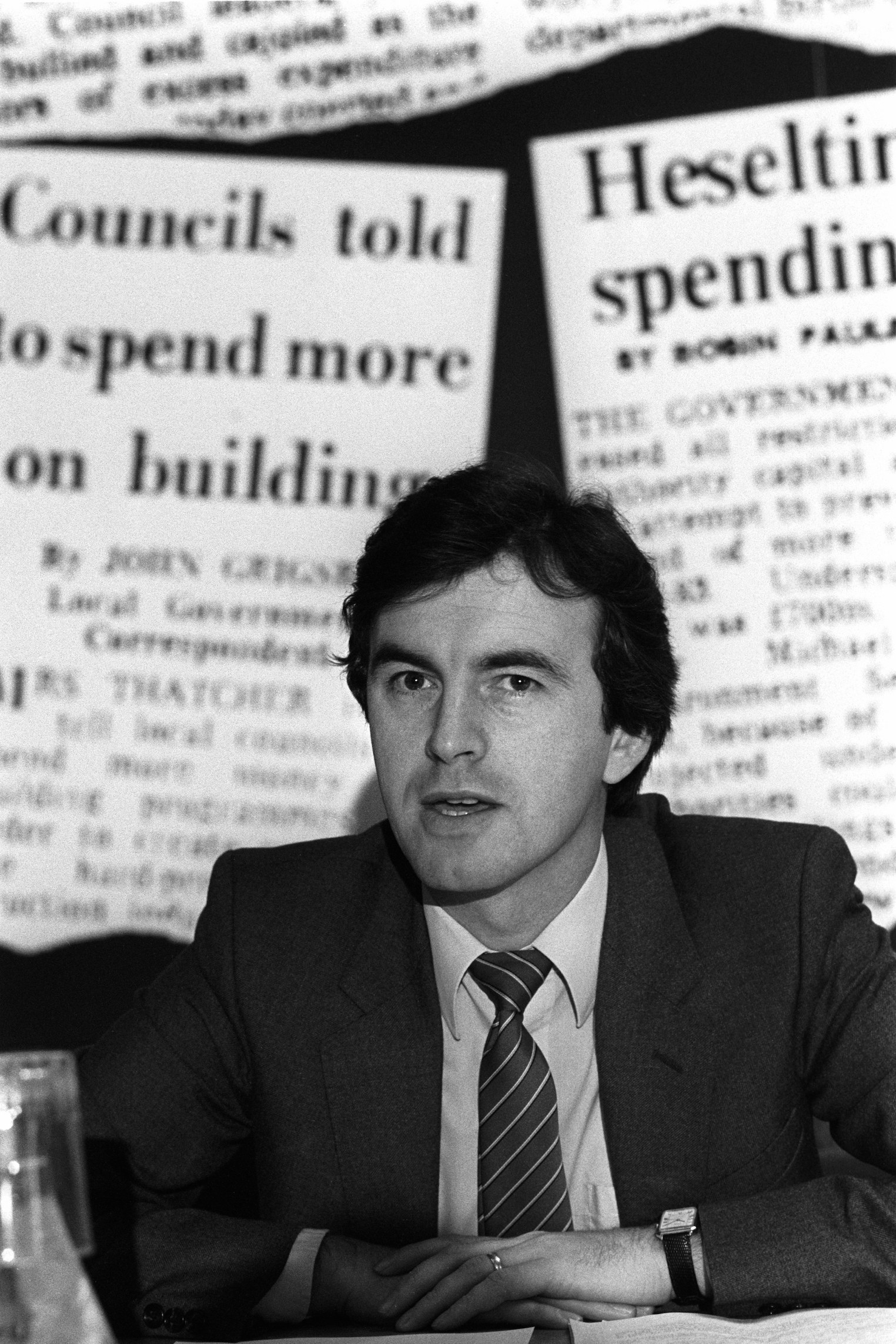
But his time at the GLC ended with a major bust-up with Livingstone over the use of budget figures. Margaret Thatcher’s government had announced a cap on council rates and the Labour-run GLC considered breaking the law to defy her order. The authority used McDonnell’s figures to warn how the policy would lead to huge cuts – but Livingstone apparently discovered other calculations showing that the GLC could actually cap rates and increase spending.
In his autobiography You Can’t Say That, Livingstone describes how he confronted McDonnell, saying: “If these figures are right we're going to look like the biggest fucking liars since Goebbels.” McDonnell was duly sacked as deputy leader ,and the pair fell out for many years. “I had no idea of the bitterness that was about to break around me or that a decade would pass before John or I would get over it,” Livingstone writes.,
McDonnell first stood for parliament in 1983, in Hampstead and Highgate, where he narrowly lost out to the Tories. He stood again in his home town of Hayes and Harlington in 1992 but lost to Tory opponent Terry Dicks by 53 votes. Dicks sued him for libel over his campaign leaflets, and McDonnell had to pay him £15,000, plus £55,000 in legal costs. Campaign groups raised funds to help him foot the bill.
When he finally unseated Dicks in 1997 – when Labour came to power, ending 18 years of Tory rule – McDonnell broke with convention in his maiden speech and offered no praise whatsoever for his predecessor. "He was a stain on the character of this house,” he said. "Thankfully, my constituents can now say good riddance to this malignant creature.”
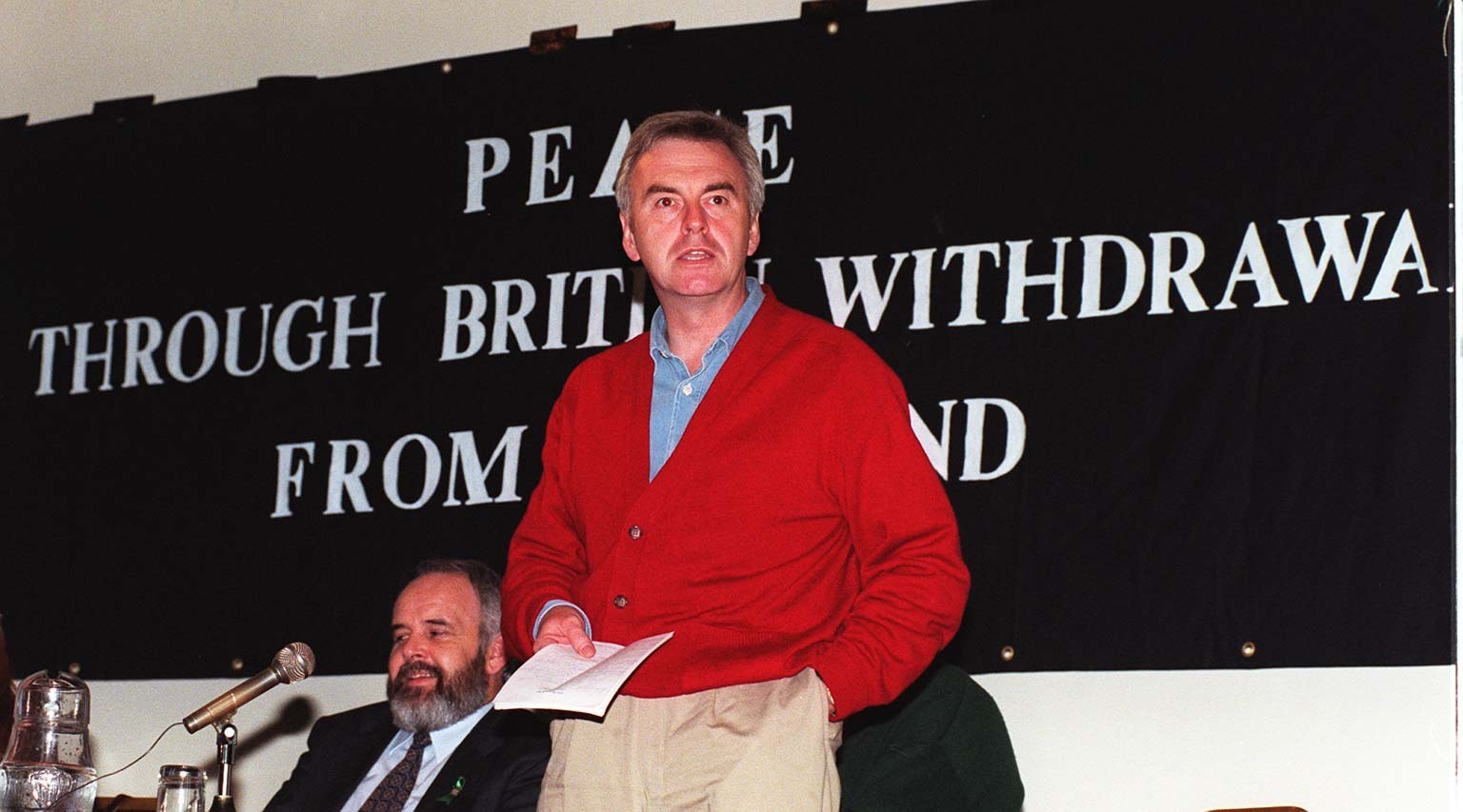
With Tony Blair at the helm of the party, McDonnell wasted no time in voting against almost all New Labour’s flagship policies, including the Iraq war, university top-up fees, anti-terror laws, and foundation hospitals. He explained in 2013: “It's my party, not theirs. I saw the Blair-Mandelson regime as a coup … All through that period the bulk of the rank-and-file party were what the party has always been, a socialist party."
McDonnell has also remained staunchly opposed to any expansion of Heathrow, which is in his constituency, claiming that 4,000 homes are at risk from a third runway. Tory London mayoral candidate Zac Goldsmith has been an unlikely ally in this fight – and McDonnell has defended him in the past from critics within Labour. Friends say he has always been willing to work with political rivals on mutual campaigns.
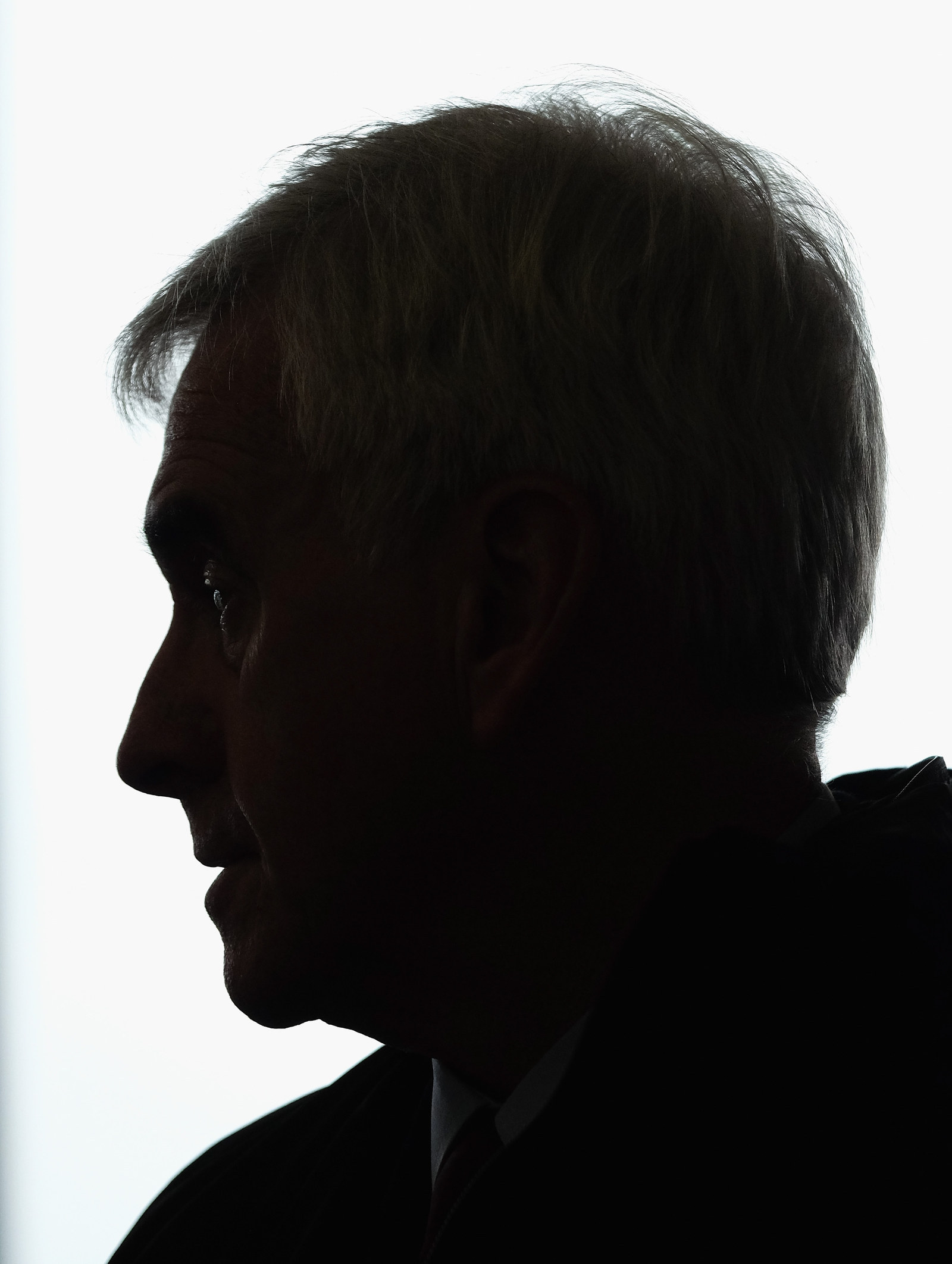
Two years ago, McDonnell was forced to take three months off work after suffering a minor heart attack. He wrote on his blog about how he had experienced chest pains for several days “but had a busy schedule of meetings in the constituency and activities in parliament and so continued on working”. It was only when he suffered "severe pains” after speaking at a public meeting that his wife insisted on taking him to hospital.
He now makes sure he keeps himself fit and eats healthily (he opted for the fish after his frontbench debut). Since becoming shadow chancellor, he's had less time to enjoy his beloved garden – lavender and rosemary in the front, fruit and vegetables in the back – and his hobby of jam-making. As a passionate Liverpool supporter, he has also resigned himself to attending fewer matches in person. Friends say he likes to wind down with a book and is currently enjoying Robert Fisk’s The Great War for Civilisation: The Conquest of the Middle East.
His own battle is convincing the British people – and his own MPs – that he can be trusted with the nation’s economy. He is determined to prove to voters that it is possible to be an idealist and a pragmatist at the same time. As he said in his conference speech: “As socialists we will display our competence with our compassion.” But Labour MPs are still struggling to take him seriously. One backbencher said: “Corbyn is a lefty adventurist, but McDonnell still thinks he’s a revolutionary, trying to bring down the state."
